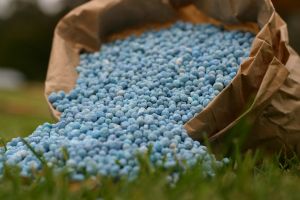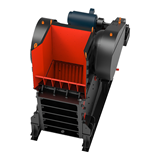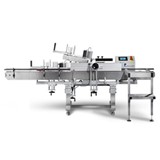For generations, growers have relied on synthetic fertilisers and other chemicals to help with growing crops and management practices.
Bachelor of Science student David Gale maintains that the use of chemically produced fertilisers is not sustainable for agriculture and the environment.
"The cost of chemical fertilisers, particularly for farmers in developing countries, is a burden on the sector.
"The mining of phosphate needed in synthetic fertilisers cannot continue indefinitely. There is a limited amount of raw material, and the process is energy intensive," he said.
According to the Neil Clark and associates' Australian Agribusiness Presentation, shown in November 2009, the total expenditure on fertilisers and chemicals was a whopping $5.1 billion in the 2008-09 financial year.
A spokesperson at the Food and Fertiliser Research Centre says that farmers around the world should take advantage of the climate change situation, realising that compost is the only cost-effective way for the future.
"Compost does several things to benefit the soil that chemical fertiliser cannot do. First, it adds organic matter, which improves the way in which water interacts with the soil. In sandy soils, compost acts as a sponge to help retain water that would otherwise drain down below the reach of plant roots. In this way, compost helps to protect the plant against drought."
In clay soils, compost helps to add porosity to the soil. This helps the soil to drain more easily, so that it does not stay waterlogged, and does not dry out into a bricklike substance.
Compost also inoculates the soil with vast numbers of beneficial microbes (bacteria, fungi, etc.) and creates the type of habitat that the microbes need to live. These microbes are able to extract nutrients from the mineral part of the soil, and eventually pass the nutrients on to plants.
"Farm fields treated with compost are also less prone to erosion. In short, high-quality compost will generally do more for soil fertility and soil quality than chemical fertiliser," said the spokesperson.
However, the centre has also mentioned that compost can not be used for all farms, and farmers should implement strategies to overcome this.
"In order to promote low-input agriculture systems that use composted organic material as the main source of soil fertility, small-scale farmers need to be informed about the economic incentives from composted organic material as a soil amendment.
"Some of the unfavourable soil properties, such as low phosphate fixating capacity or aluminum toxicity, may be corrected by the application of organic materials.
"Preliminary findings from our research clearly indicate that productivity can be improved by the proper use of organic materials. The environment also benefits through the reuse of organic wastes that otherwise would be discarded in landfill or burned," said the spokesperson.
Meanwhile, Gale will be traveling to Vietnam at the end of this month to continue his research into whether compost could really replace synthetic fertilisers, and how to sustain efficient food production.
"Ultimately my research project is about finding ways to sustainably produce enough food for communities around the world, which is something I am very passionate about," Gale said.























